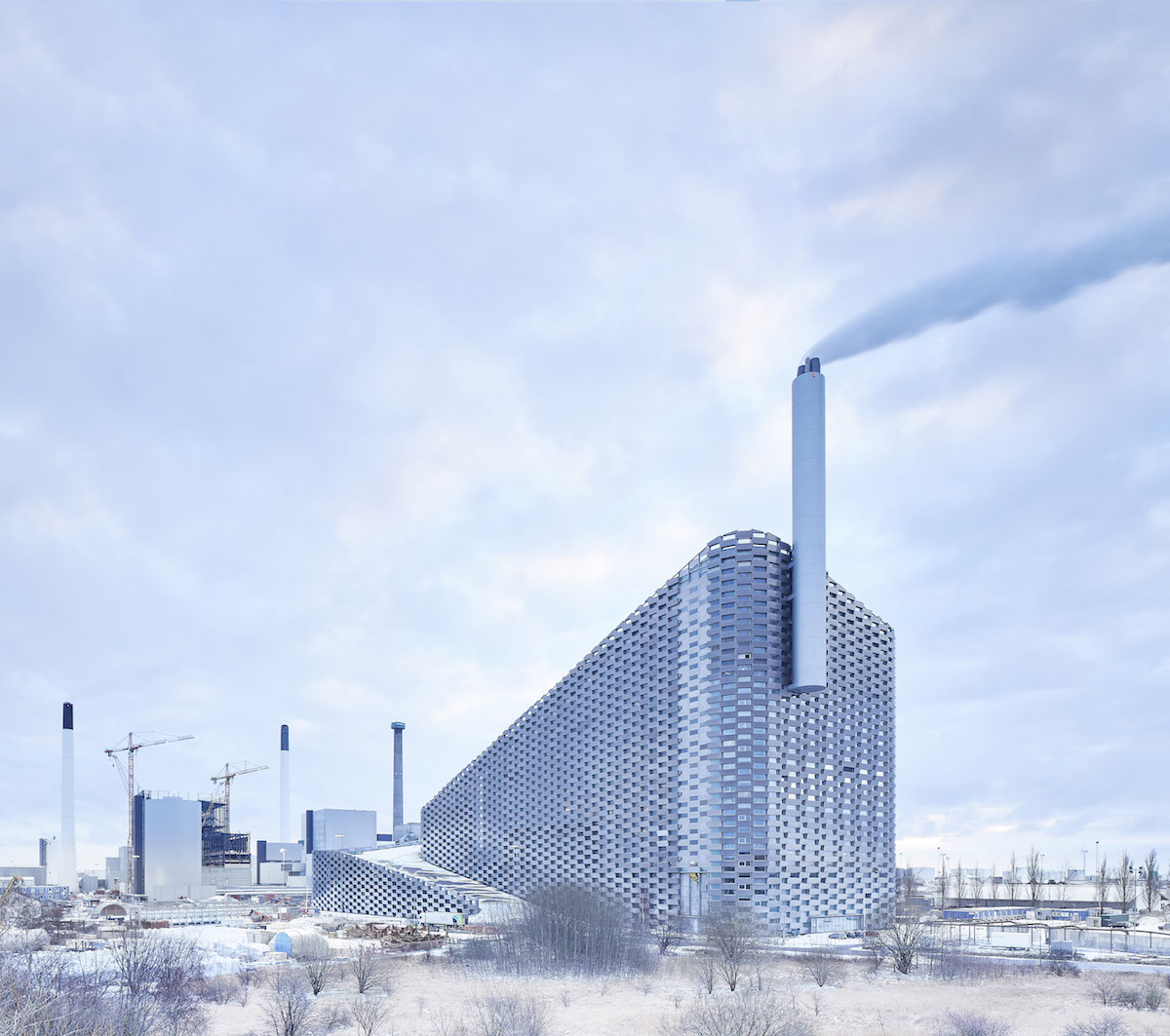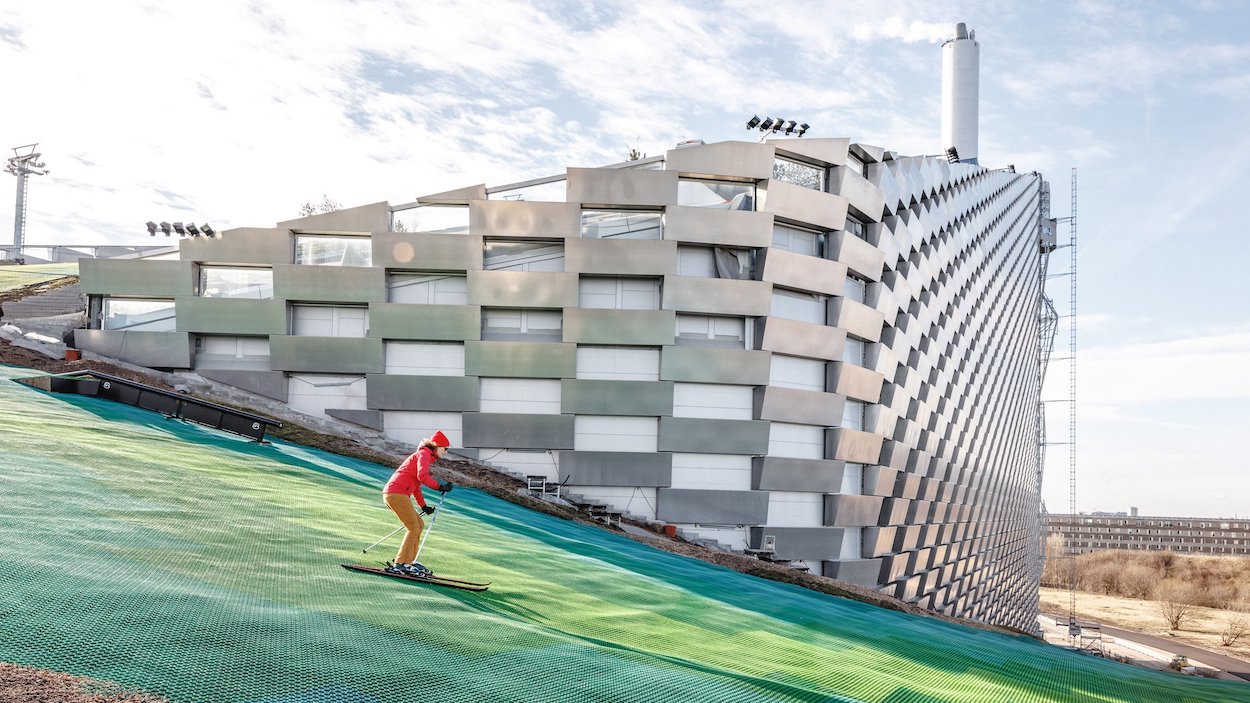When Bjarke Ingels Group first unveiled CopenHill, a waste-to-energy power plant topped with an artificial ski slope in Copenhagen, it was immediately hailed as a game-changing concept that elevated the firm to new heights. Not only does the facility convert 440,000 tons of waste into clean energy annually, but it’s topped off with a 96,000-square-foot ski slope and hiking area. The unprecedented fusion of clean energy and joyful leisure, which Ingels describes as “hedonistic sustainability,” appears as if pulled straight from a sci-fi fantasy film and remains one of the firm’s career-defining projects.
Earlier this week, CopenHill’s future was called into question after The Copenhagen Post claimed the ski slope may face permanent closure. The Danish newspaper reported that its surface has deteriorated “alarmingly quickly” and that renovation work, which will cost $1.07 million, would take nearly three years. (The prolonged closure is due in part to a liability spat between the Amager Bakke Foundation, which operates the facility, and the insurance company Tryg.) The news shocked the architecture community, which noted that CopenHill opened in October 2019 and likely experienced less foot traffic than usual during the pandemic.

